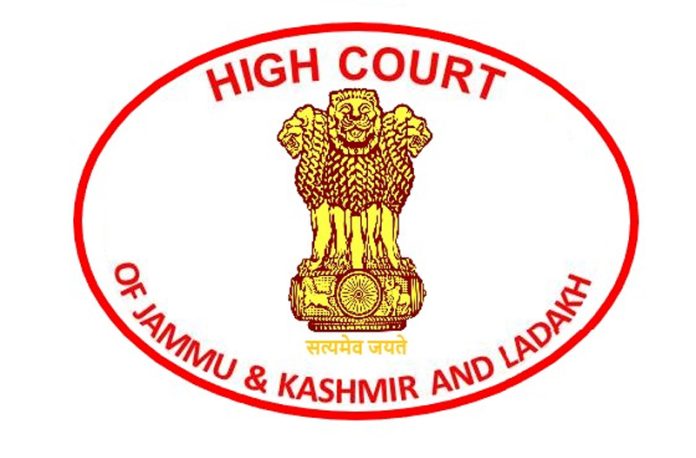Excelsior Correspondent
JAMMU, Aug 12: A Division Bench of Jammu & Kashmir and Ladakh High Court comprising Chief Justice (Acting) Tashi Rabstan and Justice Puneet Gupta has upheld the jurisdiction of the children’s court to try cases under the Unlawful Activities Prevention Act (UAPA), along with other laws and asserted that the provisions of the Juvenile Justice (Care and Protection of Children) Act, 2015 override all other statutes where a child in-conflict-with law is involved.
DB observed that the provisions of the Juvenile Justice Act will override any other provision of law for the time being in force which brings child in conflict with law and Section 1 (4) of the Act speaks so in unmistakeable terms. “The sanctity of non-obstante clause occurring in Section 1 (4) of the Act has to be maintained and followed”, the DB added.
The order has been passed in an appeal filed by NIA against the order of Special Judge NIA, which had referred the case of the juvenile Abid Mushtaq Mir to a Special Court designated under the Protection of Children from Sexual Offences Act, 2012.
Abid Mushtaq Mir, a juvenile from Pulwama, was accused of committing heinous offences under the UAP Act. The Juvenile Justice Board (JJB) declared him a juvenile but decided he should be tried as an adult due to the nature of the alleged crimes. The JJB forwarded the case to the Principal Sessions Judge, Jammu, citing the absence of a functional children’s court in the Jammu province.
Subsequently, the Principal Sessions Judge transferred the case to the designated Special Court under the NIA Act. However, the NIA court later passed an order directing that the trial be conducted by the Special Court under the POCSO Act leading to the NIA’s appeal.
The NIA contended that the NIA Court had exclusive jurisdiction over offences under the UAP Act and that the POCSO Court lacked the authority to handle such cases. The agency argued that given the severity of the charges, the trial should not be transferred to the POCSO Court.
On the other hand, the counsel for the respondent Wani Jahangir Ahmed defended the transfer, stating that the POCSO Court was the appropriate forum given the provisions of the Juvenile Justice Act and the fact that the respondent was to be tried as a juvenile.
Adjudicating the matter, the DB emphasized that the children’s court could try offences not only under the Indian Penal Code but also under any other law in force including the UAPA. “The Juvenile Justice Act, which is a later statute, would take precedence over the NIA Act, and hence the trial should be conducted in accordance with the provisions of the Juvenile Justice Act”, the DB added.
While rejecting the NIA’s argument that the severity of the punishment under the UAPA should dictate the jurisdiction, Division Bench reiterated that the Juvenile Justice Act, being beneficial legislation enacted after the NIA Act, must take precedence if there is any conflict between the two, adding “the welfare of the child is paramount and the Act takes care of the same through special provisions and the Act being beneficial legislation cannot be by-passed and ignored in any manner”.
Accordingly, DB upheld the NIA court’s decision to transfer the trial to the POCSO Court, ruling that the Special Court designated under the POCSO Act has the jurisdiction to try the case and dismissed the appeal filed by NIA.
Trending Now
E-Paper


